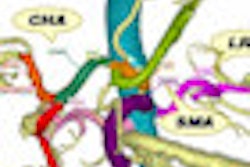
LONDON (Reuters) - The economic downturn threatens to raise cancer rates in Europe as lifestyles change, budgets are cut, and private and public sector employers take shortcuts on safety, public health experts said on Monday.
The number of deaths from cancer is falling in the region but prevention efforts are lagging behind, with new cases up by almost 20% to 2.5 million in 2008 from 2.1 million in 2002, the European Cancer Organization (ECCO) said in a press statement.
Later this month, in a special issue of the European Journal of Cancer dedicated to "Implementing Cancer Prevention in Europe," the organization plans to report that the current financial crisis is likely to damage cancer prevention in various ways, including by increasing exposure to risk factors through work or lifestyle changes.
It would also affect occupational safety and influence decisions by governments and companies on funds for research.
"Private companies and governments tend to take shortcuts in occupational safety controls during periods of economic hardship," said Dr. Jose Martin-Moreno, a public health and preventative medicine specialist at Spain's Valencia University.
He examined evidence from studies of the impact of recession on a wide range of factors that feed into cancer prevention measures, including smoking, alcohol consumption, diet and exercise, drug research, and occupational risk.
He found that while some studies have detected a slight decrease in the number of cigarettes smoked, there is little evidence to show that recessions prompt more people to quit.
On alcohol, European studies have found that abuse increases among the unemployed and worsens during severe economic downturns.
Public donations to cancer research funded by charitable organizations will fall, the researchers said, and governments as well as the pharmaceutical industry are likely to cut research and development budgets.
The prospects for disease caused by exposure to carcinogens at work are also likely to worsen in tough economic times.
Dr. Martin-Moreno cited a Korean study carried out in the 1990s which found a direct link between the reduction of health and safety costs and the ability to avoid bankruptcy.
"This exemplifies the terrible choice businesses have to make in times of economic downturn -- reduced safety for workers or economic ruin," he said.
Dr. Martin-Moreno's team set out a series of policy suggestions for governments which they said would help stop cancer prevention measures from being undermined.
These included raising taxes on alcohol and cigarettes, adapting public health messages to reinforce economic rewards for healthy changes in behavior such as giving up smoking, and providing incentives to companies to keep up investment in occupational safety.
By Kate Kelland
Last Updated: 2010-09-14 10:55:14 -0400 (Reuters Health)
Related Reading
Cancer cost world economy $895B in 2008, September 3, 2010
U.S. cancer costs double over 20 years, May 10, 2010
Medicare cancer imaging grows at twice rate of overall expenses, April 27, 2010
Copyright © 2010 Reuters Limited. All rights reserved. Republication or redistribution of Reuters content, including by framing or similar means, is expressly prohibited without the prior written consent of Reuters. Reuters shall not be liable for any errors or delays in the content, or for any actions taken in reliance thereon. Reuters and the Reuters sphere logo are registered trademarks and trademarks of the Reuters group of companies around the world.

















